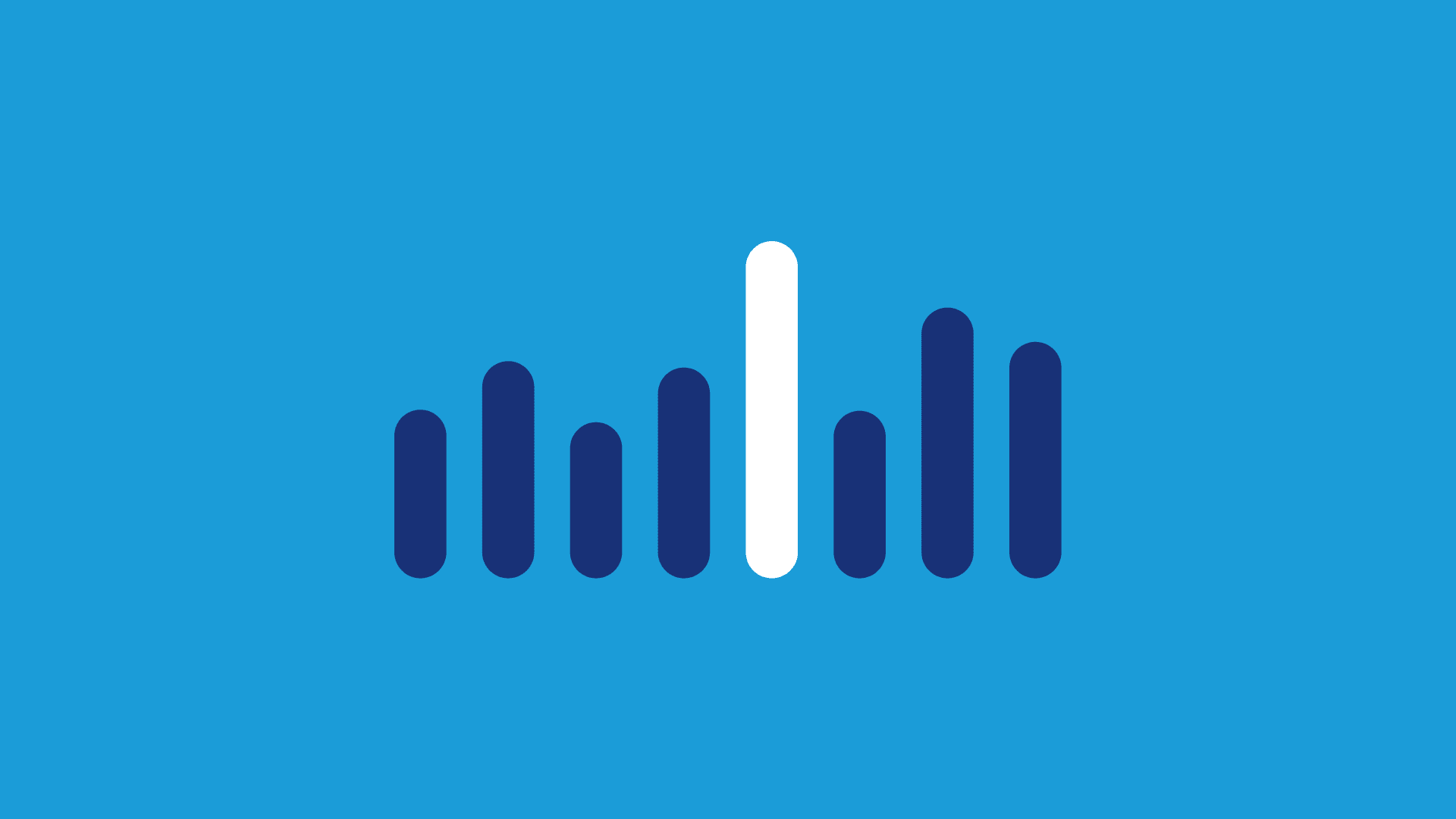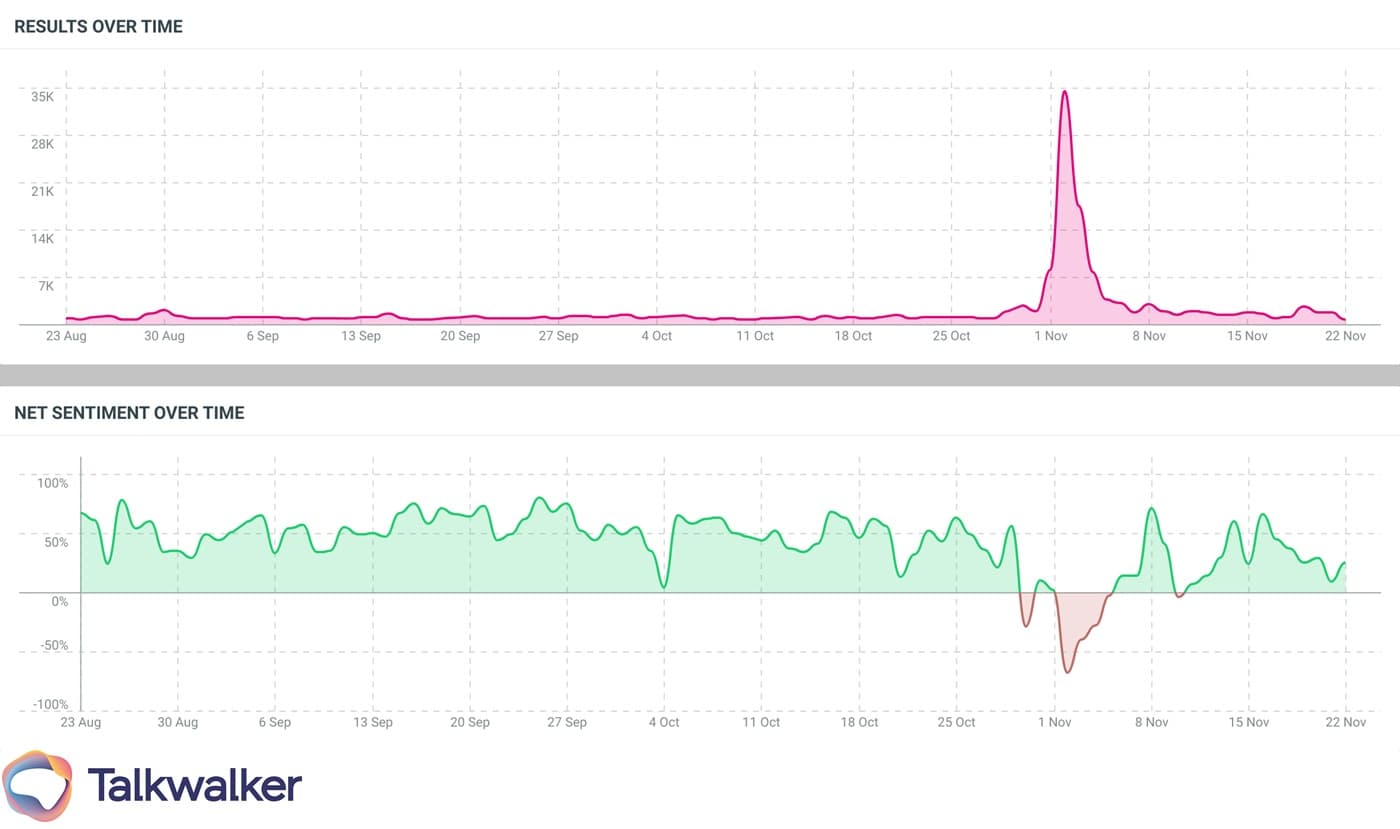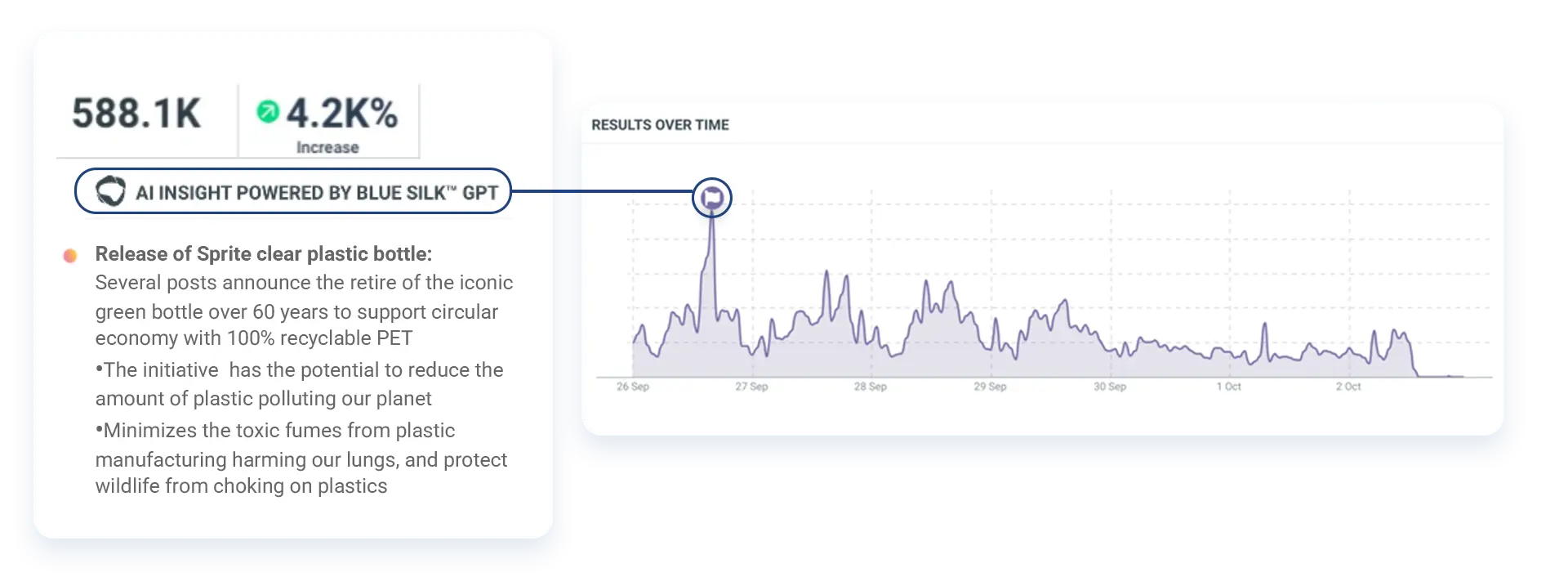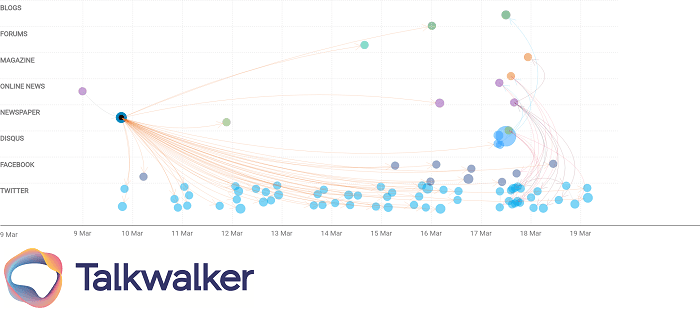Why is social listening important? 9+ brand benefits.
Discover why is social listening important for businesses. Learn how it provides insights, manages brand reputation, and drives marketing strategies.
January 8, 2024

- Understanding Social Listening
- 1. Crisis Management: Navigating Through Stormy Digital Waters
- 2. Audience Insights: Bridging the Gap Between Your Brands and Consumers
- 3. Brand Reputation Management: Protecting Your Online Presence
- 4. Influencer Identification: Leveraging Online Presence
- 5. Competitive Intelligence: Staying Ahead in the Business Arena
- 6. Product Insights: Transforming Feedback into Action
- 7. Campaign Optimization: Crafting Relevant and Engaging Messages
- 8. Customer Satisfaction: The Power of Prompt Responses
- 9. Measuring ROI: Monitoring the Success of Social Media Efforts
- Why are Social Listening Tools Important?
- Next Generation Social Listening
Social media has emerged as vital for businesses to thrive, with nearly two-thirds of businesses now using it. By using social listening to capture and understand brand conversations, you can engage potential customers in whole new ways.
But why is social listening important? This blog post uncovers 9 ways you can use social listening to help your business.
Understanding Social Listening
Social listening involves monitoring and analyzing online conversations, mentions, and industry trends. Mostly, it includes ‘listening’ to conversations from social media platforms, blogs, news, forums, and more. It is also known as social media listening, but it no longer just focuses on social media.
You can use this data to gather information about customer interactions, for actionable brand insights. These can include consumer preferences, sentiments, and pain points.
This data-driven approach empowers you to better understand your audience and make informed decisions. All while staying ahead of digital trends.
You can learn more about what is social listening in our guide.
1. Crisis Management: Navigating Through Stormy Digital Waters
Social listening plays a vital role in crisis management. In today's digital landscape, a single negative comment or review can escalate into a full-blown crisis. This can cause significant damage to your brand's image and reputation.
By leveraging social listening tools, you can proactively detect and address potential crises before they spiral out of control. It enables you to identify negative mentions and sudden shifts in sentiment quickly.

A spike in brand mentions alongside a drop in net sentiment can help you identify a crisis.
This allows you to promptly respond and reduce the impact of crises. This will help safeguard your brand's reputation and restore consumer confidence.
Plus, post-crisis analysis through social listening provides valuable insights into the effectiveness of your crisis response. By analyzing changes in sentiment and engagement, you can refine your crisis management strategies, ready for future challenges.
2. Audience Insights: Bridging the Gap Between Your Brands and Consumers
A social listening strategy is ideal for finding valuable consumer insights. By understanding customer preferences, sentiments, and pain points, you can customize your products to meet their needs. Social listening also helps you stay current with emerging preferences and trends, maintaining relevance in a dynamic market.
3. Brand Reputation Management: Protecting Your Online Presence
Social listening is crucial for effectively managing and enhancing your brand's online reputation. By closely monitoring online conversations and mentions, you can monitor your brand sentiment over time.

AI Insights help identify what is driving the conversations around your brand, and how they're impacting your brand reputation.
Social listening can also identify brand advocates and online communities. You can use these to generate positive word-of-mouth and amplify brand visibility.
4. Influencer Identification: Leveraging Online Presence
Influencers can effectively enhance your brand's online reputation. By monitoring online conversations, you can identify influential individuals who can have a positive impact on your brand.
Take a deeper dive into influencer identification by focusing on those with relevant audiences. Remember, influencers with larger reach aren’t always suitable for your brand. Instead, consider smaller influencers with engaged communities. They have the potential to drive more conversions and deliver better results.
You can also harness the power of social listening to identify and leverage user-generated content (UGC). This type of content can enhance user engagement and foster a more sustainable brand community.
5. Competitive Intelligence: Staying Ahead in the Business Arena
By integrating social listening into your digital marketing strategy, you gain invaluable competitive analysis. Stay ahead of the game by monitoring your competitors' mentions, industry trends, and audience reactions. This enables you to assess your market position, identify opportunities, and mitigate threats effectively.
By benchmarking your performance against industry competitors, you can monitor your share of voice (SOV) over time. This helps you understand who in your industry consumers are discussing the most. As your SOV increases, this should improve brand recall and lead to sales.
6. Product Insights: Transforming Feedback into Action
Social listening plays a pivotal role in product and service development. By actively monitoring social channels for customer feedback, you can gain valuable insights into areas that require enhancements. Armed with this knowledge, you can confidently make consumer-centric decisions and prioritize developments to enhance customer satisfaction.
7. Campaign Optimization: Crafting Relevant and Engaging Messages
Social listening can help shape your brand's content strategy. By understanding your target audience, you can craft tailored, captivating, and timely content that resonates with your market.

You can see how aspects of your campaigns resonate with consumers by listening to how brand stories are shared across social media.
This will help you develop compelling content that not only drives traffic and engagement but also delivers tangible conversions.
8. Customer Satisfaction: The Power of Prompt Responses
Engaging with your audience on social media can help nurture strong customer relationships and elevate your brand reputation.
Social listening helps find hidden brand mentions including conversations that don’t tag your brand. This can help you deal with issues faster, and find new conversations you may have otherwise missed.
This showcases that you hear and value your consumers’ voices. Resulting in more engaging customer service.
9. Measuring ROI: Monitoring the Success of Social Media Efforts
Social listening offers a comprehensive framework for quantifying the return on investment (ROI) from social media marketing.
You can move beyond brand monitoring, which just tracks mentions, likes, shares, and comments. Instead, integrate your sales data and social data into one platform. That way, you can directly see the impact your social efforts have on sales.
This way, you can evaluate the efficacy of your marketing campaigns and adjust expenditures to suit.
Why are Social Listening Tools Important?
Social listening wouldn’t be possible without a social listening tool or platform. Effective social listening involves monitoring all brand-related mentions from social media channels, blogs, news, podcasts, and more.
Manually gathering that information would be impossible. Instead, trust a social listening platform to gather all that data, and interpret it into valuable brand insights. Features such as alerts, dashboards, and reports help you stay on top of the conversations that matter.
The addition of AI is also essential for turning that data into valuable insights. For example, it’s key for sentiment analysis. Instead of manually reading every mention, AI can quickly identify whether the conversation is positive or negative. This can help you understand if consumers love or loathe your content in real time.
Next Generation Social Listening
This is just a flavor of some of the use cases you can use social listening to boost your brand. If any aspect of your business could benefit from real-time consumer insights, social listening can provide them.
To see how Talkwalker's Social Listening can deliver real business impact, click below.
{{cta('91430369778')}}
